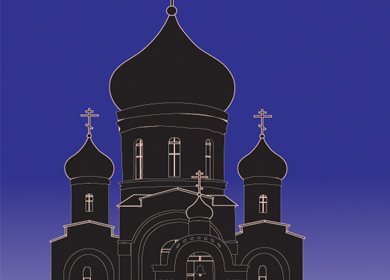Do you stay awake at night considering God’s design for His church? If your answer is no, then you are not alone. Rarely are these questions entertained in private let alone public discussion. The reality is, most members and attenders of area churches do not have the ecclesiastical structure of their church at the top of their priority list.

The Protestant Church in America has a history of independent church leadership and overarching polity which serve as counter balances to each other. We tend to have some formal structure to leadership that may mirror corporate organizational charts. At the same time, we mimic a form of democracy in volunteerism, voting, committees and participation. However, the defining characteristic of many churches is the powerful charismatic head pastor.
When Reverend Robert Schuller, the founder of the Crystal Cathedral, was unable or unwilling to step away from his bankrupt Life the problems of the organization multiplied. Without a succession plan outside of family or an inner circle of friends a Life is left with few options and tends to flounder. The legacy of a good leader in a God-glorifying church must be leaving the body stronger than he found it. Before Shuller’s 84th birthday there was not an orderly nation-wide search for a strong hand to turn around and lead the failing church; it would seem that a state of denial had set in where the real problems were not addressed.
Ironically, what is often lost in church polity is the concept of Christ-like servant leadership. Truly the most important role of church leaders is that of pastor or shepherd. If the goal of the pastor is to guide and disciple those around them into greater spiritual maturity and to become more like Christ then the advancement of personal goals is set aside. The humble role of a minister moderates ambition. Instead of a pastoral cult of personality, the improvement of the church as a whole is what the Bible teaches. And “church” means the people who gather in Jesus’ name, not a building project.
As Jesus said in Matthew 20: 25-27: “You know that the rulers of the Gentiles lord it over them, and their great men exercise authority over them. It is not this way among you, but whoever wishes to become great among you shall be your servant, and whoever wishes to be first among you shall be your slave; just as the Son of Man did not come to be served, but to serve, and to give His life a ransom for many.”
Biblical references to church structure and leadership include these terms which shed light on the respective roles of people in the church. Ecclesia refers to “the church or congregation”. Presbureros means elder and refers to older men and senior officials in counsel where experience is needed. The overseers or bishops are called Episcopos, meaning guardian or superintendent and those in this position tend to take on administrative duties. The shepherds or pastors are called Poimen which is a metaphorical term that refers to the care of sheep and emphasizes gathering and protection. The steward or Oikonomo means treasurer or manager and expresses responsible accounting of money and resources. These roles may be separate, or in smaller churches, need to be considered in terms of personality and gifting.
Generally speaking, most churches are congregational or presbyterian. We are not referencing denominations, what we are talking about is the way leadership and laity relate to one another. There are valid scriptural arguments for both positions. In terms of practical matters, congregational participation usually gets watered down when the church exceeds 200 involved members. For this reason, elder lead or presbyterian-style ecclesiastical structure is becoming more common.
The Biblical model is in conflict with either structure when Christ is not in view as the head of the church. His will must be sought in scripture and through prayer and wise counsel. That may be easier said than done when individual self-interest and pet projects become the battle ground.
While a few financially powerful or very outspoken members of the body can distort accountability, in general it is right for those in the flock to participate in decision making. If leaders refuse to properly consider the advice which they are given, many will vote with their feet and move to another church. This is a much different phenomenon than casual church hopping. This is causal dissent; those remaining should take the disappearance of honored and righteous members as a warning sign. We are not called to be dormant believers.
A good indication of our progress as the universal and global Christian church is the way we talk about and understand our role in the body. Corinthians 12:12 states, “For just as the body is one and has many members, and all the members of the body, though many, are one body, so it is with Christ.” Rather than asking “what church do you go to?” we should ask “what church are you a part of?”
Jeff can be reached at [email protected].

Comments